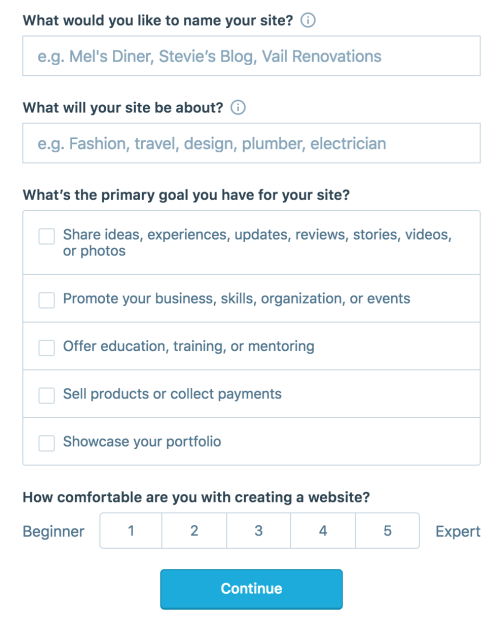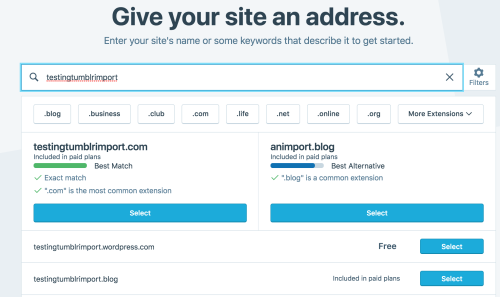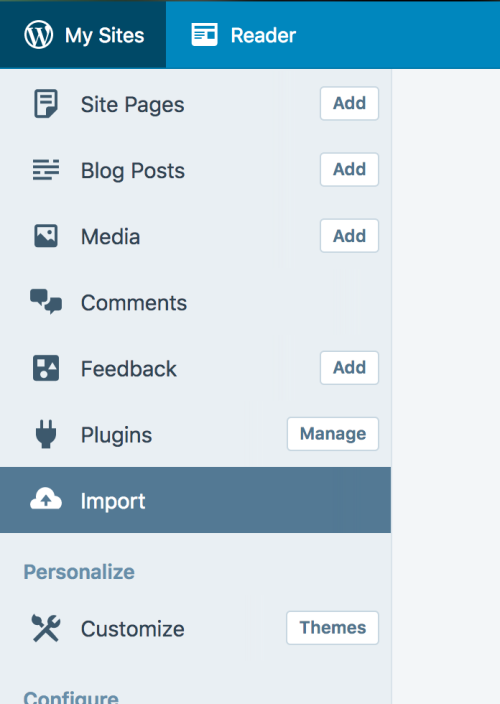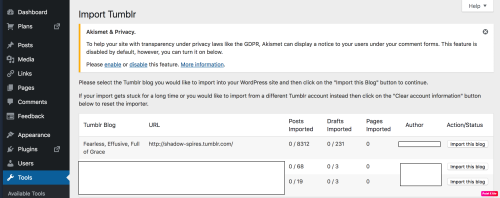Of the myriad policy decisions that have brought us to our current precipice, from the signing of the North Atlantic Free Trade Agreement (NAFTA) to the invasion of Iraq and the gerrymandering of House districts across the country, few have proven as consequential as the demise of Glass-Steagall. Signed into law as the U.S.A. Banking Act of 1933, the legislation had been crucial to safeguarding the financial industry in the wake of the Great Depression. But with its repeal in 1999, the barriers separating commercial and investment banking collapsed, creating the preconditions for an economic crisis from whose shadow we have yet to emerge.
Carmen Segarra might have predicted as much. As an employee at the Federal Reserve in 2011, three years after the dissolution of Lehman Brothers, she witnessed the results of this deregulation firsthand. In her new book, “Noncompliant: A Lone Whistleblower Exposes the Giants of Wall Street,” she chronicles the recklessness of institutions like Goldman Sachs and the stunning lengths the United States government went to to accommodate them, even as they authored one of the worst crashes in our nation’s history.
“They didn’t want to hear what I had to say,” she tells Robert Scheer in the latest installment of “Scheer Intelligence.” “And so I think what we have in terms of this story is really not just a failure of the banks and the regulators, but also a failure of our prosecutors. I mean, a lot of the statutes that could be used—criminal statutes, even, that could be used to hold these executives accountable are not being used, and they have not expired; we could have prosecutors holding these people accountable.”
Segarra also explains why she decided to blow the whistle on the Fed, and what she ultimately hopes to accomplish by telling her story. “I don’t like to let the bad guys win,” she says. “I’d rather go down swinging. So for me, I saw it as an opportunity to do my civic duty and rebuild my life. … I was very lucky to be blessed by so many people who I shared the story to, especially lawyers who were so concerned about what I was reporting, who thought that the Federal Reserve was above this, who thought that the government would not fail us after the financial crisis, and who were livid.”
“Noncompliant” explores one of the darkest chapters in modern American history, but with a crook and unabashed narcissist occupying the Oval Office, its lessons are proving remarkably timely. “We live in a culture where we reward bad behavior, we worship bad behavior, and it’s something that needs to stop,” she cautions. “Changing the regulatory culture on [a] U.S. governmental level is something that’s going to take a decade, maybe two. And we need to start now, before things get worse.”
Listen to Segarra’s interview with Scheer or read a transcript of their conversation below:
Robert Scheer: Hi, I’m Robert Scheer, and this is another edition of “Scheer Intelligence,” where the intelligence comes from my guests. Today, Carmen Segarra. She’s written a book, just came out, called “Noncompliant: A Lone Whistleblower Exposes the Giants of Wall Street.” And boy, did she ever. Perhaps you remember this case; it was in 2011, two, three years into the Great Recession. There was a lot of pressure from Congress that these banks be regulated in a more serious way. As a result, Carmen Segarra, someone of considerable education, was brought in. And she was assigned to do a survey of Goldman Sachs, to go over to Goldman Sachs. And I just want to preface this, people have to understand that not only is the Federal Reserve an incredibly—the most important economic institution in the United States, but the New York Federal Reserve plays a special role being in New York. And they are basically entrusted with regulating the banks, and they are the institution that most definitely failed in that task, and helped bring about the Great Recession. Would you agree with that assessment?
Carmen Segarra: Yes, I would agree with that assessment. When I joined the Federal Reserve, as you pointed out, I was hired from outside the regulatory world, but within the legal and compliance banking world, to help fix its problems. And I was well aware of the problems that existed. And scoping the problems itself was relatively easy; I mean, within days of arriving, I had participated in meetings where you had Goldman Sachs executives, you know, lying, doublespeaking, and misrepresenting to regulatory agencies without fear of repercussions. And where I saw Federal Reserve regulators actively working to suppress and expunge from the record evidence of wrongdoing that could be used by regulatory agencies, prosecutors, and even the Federal Reserve itself to hold Goldman Sachs accountable. The question was, when I arrived, you know, are these problems fixable? And, spoiler alert: I don’t think so. (...)
RS: Well, before you get to the whistleblowing stage, I think you’re being too kind to what I personally think are people who should be considered as, or at least charged and examined often with what is criminal behavior. Because ignorance is really not a good defense; when they were called before congressional committees, these knowledgeable people admitted they really didn’t understand collateralized debt obligations and credit default swaps. And for people who are not that familiar, you mentioned Glass-Steagall. And what Glass-Steagall was, was one of the, really maybe the most important response of Franklin Delano Roosevelt’s democratic administration to the Great Depression. And how did this terrible depression happen, how were the banks so irresponsible. And they decided the key thing was to separate investment banks from commercial bank; investment banks could be high-rollers, private money, you know what you’re doing, you have knowledge; and commercial banks where you’re basically protecting the assets of ordinary people, they’re not knowledgeable, they’re trusting your expertise. And eliminating Glass-Steagall eliminated this wall between the two kinds of banking. And the company that you went to observe, Goldman Sachs, was an investment bank. And by the working of that law, they should have been allowed to go belly-up when it turned out they had a lot of these dubious credit default swaps and collateralized debt obligations. To people who don’t know, a credit default swap was a phony insurance policy pretending to cover these things, but really there’s nothing backing it up. And somehow, in order to save them, they were allowed to announce they could do commercial banking. One could argue, in some ways, the barrier was lifted to help–Citigroup was of course the other one–Citibank. And these are two banks that the government stepped in to help and create this monster. Is it not the case?
CS: Yeah, that’s absolutely the case. But there’s a couple of things that we need to keep in mind. I mean, I think that we’re all sort of educated enough to know that, you know, where there’s a will, there’s a way. And so if a system can be corrupted, people that are allowed to grab hold of power will corrupt it–insofar and only for so long as we allow those people to have the ability and the power to corrupt it. So ultimately, talking about more or less rules, or different rules, is productive only to a point. Because ultimately what we’re talking about here is the haphazard, slap on the wrist, failure to truly enforce the rules and regulations equitably across the system. And that creates the imbalances that you see, for example, in Goldman Sachs, and that you see in the system in general. One of the things that happened as a result of Glass-Steagall coming down was that a lot of the investment bankers were allowed to take over the commercial banks. And those investment bankers knew nothing about banking, and Goldman is a great example of that. I mean, when I arrived three years in after the financial crisis, what was one of the things that was very shocking to me was going into meeting after meeting with Goldman senior management and hearing them lie, doublespeak, and most shockingly of all, insist that they didn’t have to comply with the law. And that is a problem. Because a bank that doesn’t believe, or management at a bank that doesn’t believe they have to comply with the law–you bet they are not supervising their employees correctly, and they’re not incentivizing employees correctly in terms of how to do their job. So their behavior is injecting enormous risk into the system.
RS: Why should they think they should comply with the law when they got the law written and they could get it rewritten? I mean, after all, the treasury secretary, who pushed in the Clinton administration, right, to get rid of this restraint of Glass-Steagall and allow companies like Goldman Sachs to cross that line, was Robert Rubin. And he had been a top executive at Goldman Sachs. In fact, people used to refer to it as Government Sachs, that they had people all over the government, and it was a revolving door. And I want to point out that what you did, which was really unique–you had the guts to record these conversations. When you finally got to have your say before Congress, you could be backed up because you had the record. And tell us about that record. The conversations you recorded are absolutely chilling in describing an atmosphere of cynicism; you know, corruption; contempt, actually, for the political process and for restraint and regulation.
CS: Yeah. And I would sort of add that part of what the book sort of points out is that I didn’t really get my say. I mean, Congress did hold a hearing, but they did not invite me to testify. They didn’t want to hear what I had to say. And so I think what we have in terms of this story is really not just a failure of the banks and the regulators, but also a failure of our prosecutors. I mean, a lot of the statutes that could be used–criminal statutes, even, that could be used to hold these executives accountable are not being used, and they have not expired; we could have prosecutors holding these people accountable. We could have trial lawyers filing cases and holding these people accountable. Yet we can’t count on them to do it; we can’t count on the judiciary to do anything about it. I mean, when you read about what happened in my case in the book, it’s tragic, you know? It’s unbelievable. (...)
RS: Well, we’ll see change. It might not be good change. I mean, you have Donald Trump–and I want to put some oomph behind this, that it’s bipartisan. Because one of the–you know, everybody, a lot of people I know are very upset about Donald Trump. He’s speaking to what Hillary Clinton calls the “deplorables”; but there’s a lot of people hurting out there. And if you read a study done by the Federal Reserve of St. Louis about the consequence of this economic meltdown that was engineered from places like Goldman Sachs, the human cost was incredible. I mean, people lost everything. They weren’t bailed out. There was no mortgage relief. They were not helped. The banks were bailed out. And yet no one has been held accountable, and the politicians, democrats and republicans, who supported it, have gotten off scot-free.
CS: ... This is not a democratic problem, this is not a republican problem. This is an American problem with worldwide impact. The U.S. dollar is a reserve currency. The world depends in large part on the American banking system to work. And for it to work, there are these rules, and these rules are there to create trust in the system and to create smooth processes in the system, so that money can be moved and the economy can continue to grow. If the world can no longer trust the American banking system because Americans cannot be trusted to regulate it, they are going to move away from the American banking system. They are going to move away from the U.S. dollar as a reserve currency. And then we are going to find ourselves in the situation that a lot of countries that are not governed by reserve currencies find themselves occasionally, from time to time, whenever they have a crisis. You know, we’re talking about countries in Latin America; we’re talking about countries in Africa; we’re talking about countries in Asia. I hope the book will inspire people to really take a look around and realize, you know, the American consumer, the American worker, is incredibly powerful. You know, these banks cannot survive without our money. We don’t have to wait for the government to keep failing us; we don’t have to wait for the judiciary to keep failing us; we don’t have to wait for lawyers to keep failing us. We choose who we work for. We choose where we keep our money. We can choose to protest. We can choose to call our pension funds and tell them, I want you to stop doing business with Goldman Sachs. It’s what we do on a daily basis. When we stand up and we say, I am not going to be banking with these people–they will listen. It’s like, they control all of these other checks and balances that were put in place in terms of the government to stop them. So now it’s up to us as a people to actually do something about this.
Carmen Segarra might have predicted as much. As an employee at the Federal Reserve in 2011, three years after the dissolution of Lehman Brothers, she witnessed the results of this deregulation firsthand. In her new book, “Noncompliant: A Lone Whistleblower Exposes the Giants of Wall Street,” she chronicles the recklessness of institutions like Goldman Sachs and the stunning lengths the United States government went to to accommodate them, even as they authored one of the worst crashes in our nation’s history.
“They didn’t want to hear what I had to say,” she tells Robert Scheer in the latest installment of “Scheer Intelligence.” “And so I think what we have in terms of this story is really not just a failure of the banks and the regulators, but also a failure of our prosecutors. I mean, a lot of the statutes that could be used—criminal statutes, even, that could be used to hold these executives accountable are not being used, and they have not expired; we could have prosecutors holding these people accountable.”
Segarra also explains why she decided to blow the whistle on the Fed, and what she ultimately hopes to accomplish by telling her story. “I don’t like to let the bad guys win,” she says. “I’d rather go down swinging. So for me, I saw it as an opportunity to do my civic duty and rebuild my life. … I was very lucky to be blessed by so many people who I shared the story to, especially lawyers who were so concerned about what I was reporting, who thought that the Federal Reserve was above this, who thought that the government would not fail us after the financial crisis, and who were livid.”
“Noncompliant” explores one of the darkest chapters in modern American history, but with a crook and unabashed narcissist occupying the Oval Office, its lessons are proving remarkably timely. “We live in a culture where we reward bad behavior, we worship bad behavior, and it’s something that needs to stop,” she cautions. “Changing the regulatory culture on [a] U.S. governmental level is something that’s going to take a decade, maybe two. And we need to start now, before things get worse.”
Listen to Segarra’s interview with Scheer or read a transcript of their conversation below:
Robert Scheer: Hi, I’m Robert Scheer, and this is another edition of “Scheer Intelligence,” where the intelligence comes from my guests. Today, Carmen Segarra. She’s written a book, just came out, called “Noncompliant: A Lone Whistleblower Exposes the Giants of Wall Street.” And boy, did she ever. Perhaps you remember this case; it was in 2011, two, three years into the Great Recession. There was a lot of pressure from Congress that these banks be regulated in a more serious way. As a result, Carmen Segarra, someone of considerable education, was brought in. And she was assigned to do a survey of Goldman Sachs, to go over to Goldman Sachs. And I just want to preface this, people have to understand that not only is the Federal Reserve an incredibly—the most important economic institution in the United States, but the New York Federal Reserve plays a special role being in New York. And they are basically entrusted with regulating the banks, and they are the institution that most definitely failed in that task, and helped bring about the Great Recession. Would you agree with that assessment?
Carmen Segarra: Yes, I would agree with that assessment. When I joined the Federal Reserve, as you pointed out, I was hired from outside the regulatory world, but within the legal and compliance banking world, to help fix its problems. And I was well aware of the problems that existed. And scoping the problems itself was relatively easy; I mean, within days of arriving, I had participated in meetings where you had Goldman Sachs executives, you know, lying, doublespeaking, and misrepresenting to regulatory agencies without fear of repercussions. And where I saw Federal Reserve regulators actively working to suppress and expunge from the record evidence of wrongdoing that could be used by regulatory agencies, prosecutors, and even the Federal Reserve itself to hold Goldman Sachs accountable. The question was, when I arrived, you know, are these problems fixable? And, spoiler alert: I don’t think so. (...)
RS: Well, before you get to the whistleblowing stage, I think you’re being too kind to what I personally think are people who should be considered as, or at least charged and examined often with what is criminal behavior. Because ignorance is really not a good defense; when they were called before congressional committees, these knowledgeable people admitted they really didn’t understand collateralized debt obligations and credit default swaps. And for people who are not that familiar, you mentioned Glass-Steagall. And what Glass-Steagall was, was one of the, really maybe the most important response of Franklin Delano Roosevelt’s democratic administration to the Great Depression. And how did this terrible depression happen, how were the banks so irresponsible. And they decided the key thing was to separate investment banks from commercial bank; investment banks could be high-rollers, private money, you know what you’re doing, you have knowledge; and commercial banks where you’re basically protecting the assets of ordinary people, they’re not knowledgeable, they’re trusting your expertise. And eliminating Glass-Steagall eliminated this wall between the two kinds of banking. And the company that you went to observe, Goldman Sachs, was an investment bank. And by the working of that law, they should have been allowed to go belly-up when it turned out they had a lot of these dubious credit default swaps and collateralized debt obligations. To people who don’t know, a credit default swap was a phony insurance policy pretending to cover these things, but really there’s nothing backing it up. And somehow, in order to save them, they were allowed to announce they could do commercial banking. One could argue, in some ways, the barrier was lifted to help–Citigroup was of course the other one–Citibank. And these are two banks that the government stepped in to help and create this monster. Is it not the case?
CS: Yeah, that’s absolutely the case. But there’s a couple of things that we need to keep in mind. I mean, I think that we’re all sort of educated enough to know that, you know, where there’s a will, there’s a way. And so if a system can be corrupted, people that are allowed to grab hold of power will corrupt it–insofar and only for so long as we allow those people to have the ability and the power to corrupt it. So ultimately, talking about more or less rules, or different rules, is productive only to a point. Because ultimately what we’re talking about here is the haphazard, slap on the wrist, failure to truly enforce the rules and regulations equitably across the system. And that creates the imbalances that you see, for example, in Goldman Sachs, and that you see in the system in general. One of the things that happened as a result of Glass-Steagall coming down was that a lot of the investment bankers were allowed to take over the commercial banks. And those investment bankers knew nothing about banking, and Goldman is a great example of that. I mean, when I arrived three years in after the financial crisis, what was one of the things that was very shocking to me was going into meeting after meeting with Goldman senior management and hearing them lie, doublespeak, and most shockingly of all, insist that they didn’t have to comply with the law. And that is a problem. Because a bank that doesn’t believe, or management at a bank that doesn’t believe they have to comply with the law–you bet they are not supervising their employees correctly, and they’re not incentivizing employees correctly in terms of how to do their job. So their behavior is injecting enormous risk into the system.
RS: Why should they think they should comply with the law when they got the law written and they could get it rewritten? I mean, after all, the treasury secretary, who pushed in the Clinton administration, right, to get rid of this restraint of Glass-Steagall and allow companies like Goldman Sachs to cross that line, was Robert Rubin. And he had been a top executive at Goldman Sachs. In fact, people used to refer to it as Government Sachs, that they had people all over the government, and it was a revolving door. And I want to point out that what you did, which was really unique–you had the guts to record these conversations. When you finally got to have your say before Congress, you could be backed up because you had the record. And tell us about that record. The conversations you recorded are absolutely chilling in describing an atmosphere of cynicism; you know, corruption; contempt, actually, for the political process and for restraint and regulation.
CS: Yeah. And I would sort of add that part of what the book sort of points out is that I didn’t really get my say. I mean, Congress did hold a hearing, but they did not invite me to testify. They didn’t want to hear what I had to say. And so I think what we have in terms of this story is really not just a failure of the banks and the regulators, but also a failure of our prosecutors. I mean, a lot of the statutes that could be used–criminal statutes, even, that could be used to hold these executives accountable are not being used, and they have not expired; we could have prosecutors holding these people accountable. We could have trial lawyers filing cases and holding these people accountable. Yet we can’t count on them to do it; we can’t count on the judiciary to do anything about it. I mean, when you read about what happened in my case in the book, it’s tragic, you know? It’s unbelievable. (...)
RS: Well, we’ll see change. It might not be good change. I mean, you have Donald Trump–and I want to put some oomph behind this, that it’s bipartisan. Because one of the–you know, everybody, a lot of people I know are very upset about Donald Trump. He’s speaking to what Hillary Clinton calls the “deplorables”; but there’s a lot of people hurting out there. And if you read a study done by the Federal Reserve of St. Louis about the consequence of this economic meltdown that was engineered from places like Goldman Sachs, the human cost was incredible. I mean, people lost everything. They weren’t bailed out. There was no mortgage relief. They were not helped. The banks were bailed out. And yet no one has been held accountable, and the politicians, democrats and republicans, who supported it, have gotten off scot-free.
CS: ... This is not a democratic problem, this is not a republican problem. This is an American problem with worldwide impact. The U.S. dollar is a reserve currency. The world depends in large part on the American banking system to work. And for it to work, there are these rules, and these rules are there to create trust in the system and to create smooth processes in the system, so that money can be moved and the economy can continue to grow. If the world can no longer trust the American banking system because Americans cannot be trusted to regulate it, they are going to move away from the American banking system. They are going to move away from the U.S. dollar as a reserve currency. And then we are going to find ourselves in the situation that a lot of countries that are not governed by reserve currencies find themselves occasionally, from time to time, whenever they have a crisis. You know, we’re talking about countries in Latin America; we’re talking about countries in Africa; we’re talking about countries in Asia. I hope the book will inspire people to really take a look around and realize, you know, the American consumer, the American worker, is incredibly powerful. You know, these banks cannot survive without our money. We don’t have to wait for the government to keep failing us; we don’t have to wait for the judiciary to keep failing us; we don’t have to wait for lawyers to keep failing us. We choose who we work for. We choose where we keep our money. We can choose to protest. We can choose to call our pension funds and tell them, I want you to stop doing business with Goldman Sachs. It’s what we do on a daily basis. When we stand up and we say, I am not going to be banking with these people–they will listen. It’s like, they control all of these other checks and balances that were put in place in terms of the government to stop them. So now it’s up to us as a people to actually do something about this.
by Robert Sheer, Truthdig | Read more:
[ed. See also: “US Regulators Have Essentially Become Do-Nothing Institutions”.]
[ed. See also: “US Regulators Have Essentially Become Do-Nothing Institutions”.]
























